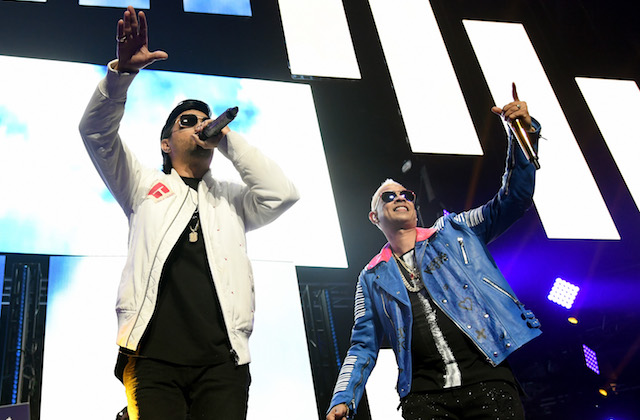The combined weight of Hurricane Maria‘s damage and an enduring debt crisis pushed thousands of Puerto Ricans to leave the island for the mainland United States over the past year. One of those residents, NPR’s Coral Murphy, detailed in an article NPR published today (August 30), how reggaeton continues to offer many Puerto Ricans personal comfort from afar.
The article traces reggaeton’s contemporary cultural status and global popularity back to its origins in San Juan’s working-class and Afro-Latinx communities. This association once made many Puerto Ricans, especially the island’s economic elite, scornful of the genre.
"Reggaeton was highly stigmatized when it first came out," sociologist Petra Rivera-Rideau told NPR. "This is because it came from poor, urban and Black communities that were subject to racial discrimination." This association changed as the genre became more commercially successful, and Rivera-Rideau adds that "some say reggaeton even became a national symbol in Puerto Rico."
If songs like "Despacito" took reggateon to new commercial heights, then the flight of Puerto Ricans to places like Florida only fueled the demand. "There has been an increase in the growth of our audience because there are more Puerto Ricans here, and they are looking to feel more identified with Puerto Rico," DJ Ramón Gómez of Kissimee, Florida radio station Urbana FM said in the article.
This connection is especially evident in the experiences of people like Kevin Ortiz, who came to Brown University through its hurricane relief program. His own distaste for reggaeton changed after he enrolled at the Ivy League school:
rnt
"When I arrived at Brown University, I was completely separated from Puerto Rico, and I had acquired this new idea that the feelings I had towards this genre weren’t actually founded on anything," says the 19-year-old Ortiz. To him, judging someone based on listening to reggaetón now seems classist and elitist. "I said ‘I might as well give it a shot.’ I started listening and I couldn’t stop. It’s really catchy, and it made me think of Puerto Rico — I would say that is the reason I started. I kept listening because I felt identified with this music."
